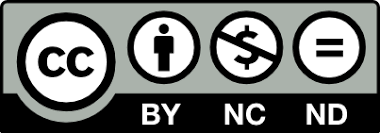COMPARATIVE LINGUISTIC AND FUNCTIONAL ANALYSIS OF VERBAL IRONY DURING THE COVID-19 PANDEMIC
Using Examples from English and Georgian Facebook Posts
Keywords:
verbal irony, pandemic, shared background knowledge, social functions, CMDAbstract
This paper discusses the function of verbal irony on social media via comparative analysis through the scope of social and cultural peculiarities revealed in social, cultural, religious, and other characteristics of an individual or a group of people. The function is manifested through a shared language, symbols, norms, and values of the population to which they belong. The empirical data
cover verbal posts shared on Facebook by English and Georgian users during the 2020 March-April COVID-19 pandemic. The paper discusses the process of decoding irony through its psycho-emotional and functional perception demonstrated in the following components: 1. Background knowledge of the speaker/writer and listener/reader, their general perception of the world, their profession, and place in the social environment (Colston, Katz, 2005); 2. The situational character of irony (Kotthoff,
2003); 3. Insincerity or the effect of allusion pretense (Kumon Nakamura, Glucksberg, Brown,1995) 4. The contrast of the verbal ironic statement with the implied meaning (Sperber and Wilson,1986). From the functional perspective, the study of irony in this paper is based on the following categories suggested by Dui, Caplan, and Verner: 1. Humor 2. The elevation of the social
status 3. Aggression, and 4. Emotional control (Dews, Caplan, Winner, 2009). More specifically, the paper aims to explore the following issues:1. How is the function of irony revealed in verbal posts on Facebook? 2. What is the socio-pragmatic function of this figure of speech in virtual reality? 3. Can we trace cultural differences in English and Georgian verbal posts on Facebook during the March-April 2020 pandemic?
Full Text (PDF)
References
Attardo, S. (1997). Locutionary and perlocutionary cooperation: The perlocutionary cooperative principle. Journal of Pragmatics, volume 27, Issue 6, Pages 753-779, ISSN 0378-2166. https://doi.org/10.1016/S0378-2166(96)00063-X
Attardo, S. (2000). Irony as relevant inappropriateness. Journal of Pragmatics,Volume 32, Issue 6, Pages 793-826, ISSN 0378-2166. https://doi.org/10.1016/S0378-2166(99)00070-3
Attardo, S. (2001). Humorous Texts: A Semantic and Pragmatic Analysis. Humor Research Series6. Berlin and New York: Mouton de Gruyter. 238 pages, ISBN 3-11-017068-X. https://www.academia.edu/24580095/
Airaksinen, T. (2022) Socratic Irony and Argumentation. Argumentation 36, 85–100 (2022). https://rdcu.be/cTjpZ
Austin, J. L. (1962). How To do things with words. Harvard University Press, 1975 M04 15 -168p https://www.academia.edu/36270217/Austin_1962_how_to_do_things_with_words 6. Clark, H. (1987). Relevance to what? Behavioral and Brain Sciences 10(4):714 https://philpapers.org/rec/CLARTW-3
Clark, H. H. & Gerrig, R. J. (1984). On the Pretense Theory of Irony. Journal of ExperimentalPsychology:General,113(1),121–126. https://doi.org/10.1037/0096- 3445.113.1.121
Colston, H. L. (2005). Social and Cultural Influences on Figurative and Indirect Language. Figurative language comprehension: Social and cultural influences (pp. 99–130). Lawrence Erlbaum Associates Publishers. https://psycnet.apa.org/record/2005-15190-005
Dews, S. & Winner, E. (1995). Muting the meaning: A social function of irony. Metaphor and Symbolic Activity 10(1): 3-19. https://doi.org/10.1207/s15327868ms1001_2
Dews S., Kaplan J., & Winner, E. (1995, 2009). Why Not Say It Directly? The Social Functions of Irony. Discourse Processes, 19, 347-367. DOI:10.1080/01638539509544922
Delos-Reyes, R. (2018). The functions of language in Facebook posting. Asian EFL Journal 20(3):196-206. https://www.researchgate.net/journal/Asian-EFL-Journal-1738-1460
Ferrari, G.R.F. (2008). Socratic irony as pretense. Oxford Studies in Ancient Philosophy 34:1-33 https://philpapers.org/rec/FERSIA-3












